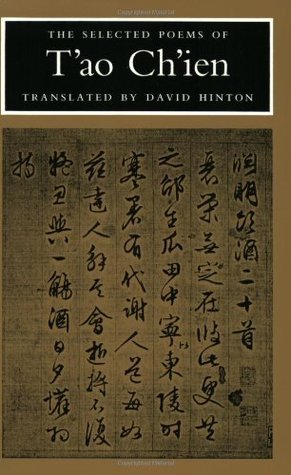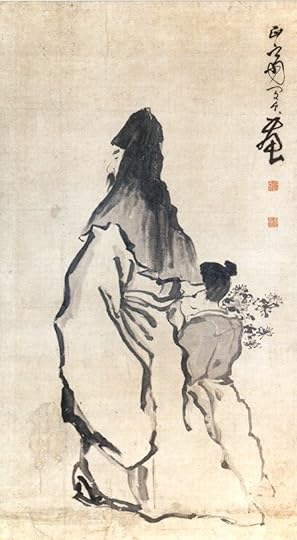What do you think?
Rate this book


96 pages, Paperback
First published May 1, 2000

"'Tao Yuanming', ink on paper scroll by Min Zhen, 18th century china" by Min Zhen - Calendar News, Honolulu Academy of Arts, Jan./Feb. 2007. Licensed under Public domain via Wikimedia Commons.
At this distant, bramble-woven gate, my
wanderings come to rest, the world and I
let each other go. Not a soul in sight.
At dusk, who knows my gate sat closed
all day? This year-end wind bitter cold,
falling snow a thick, day long shroud...